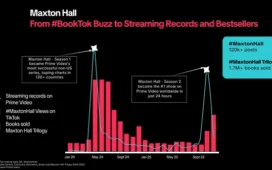Jurors in Sean Combs’ sex trafficking and racketeering trial reached a partial verdict Tuesday but remained divided on the major count alleging the music mogul ran a criminal enterprise. Deliberations are expected to continue Wednesday starting at 9 a.m.
The jury sent a note to U.S. District Judge Arun Subramanian at around 4:05 p.m. saying that after less than two full days of deliberations, they successfully reached unanimous decisions on four of the five counts in Combs’ indictment. They then told the court they were “unable” to reach agreement on count one, racketeering conspiracy, saying they had “unpersuadable opinions on both sides.”
As Combs’ lawyers informed him of the partial verdict, the music mogul stood for a moment before plopping into his chair. With his eight lawyers huddled around him, a visibly rattled Combs stared straight ahead until his lead defense attorney Marc Agnifilo brought him the handwritten note to read for himself. As the parties conferred on how to respond to the jury, Combs’ three sons and three eldest daughters shuffled into the courtroom.
In their note, jurors said they reached decisions on one count of sex trafficking related to Combs’ ex-girlfriend Casandra “Cassie” Ventura, one count of sex trafficking related to a more recent ex-girlfriend who testified under the pseudonym “Jane,” and two counts of transportation to engage in prostitution. The note did not reveal which way the jury voted on any of the four counts, at least according to the version the judge read aloud in court. With deliberations ongoing, it’s possible the individual verdicts could still change. Combs has pleaded not guilty and denied the allegations against him.
While both the prosecution and defense told Subramanian that they wanted the jury to keep deliberating, they differed on the best way to respond to the jury’s note. Prosecutors asked for a modified Allen charge — essentially an instruction urging the jury to reach a verdict. They also wanted an extra sentence used during the prosecution of disgraced lawyer Michael Avenatti that instructed there was no reason to conclude any other jury would be any more competent and intelligent.
The defense said they believed such forceful language wasn’t required at this time. Looking at the defense proposal, the judge said “there’s not much there,” and he needed to be more responsive.
“I don’t know that the jury really needs help,” Agnifilo said, calling the panel “remarkably efficient” for reaching four verdicts in only 12 hours. The judge essentially struck a compromise.
“I ask that you keep deliberating,” he instructed the panel before reiterating some of his original instructions about jury deliberations. “It is your duty as jurors to consult with one another and to deliberate with a view to reaching an agreement,” he continued. “Each of you must decide the case for himself or herself, but you should do so only after a consideration of the case with your fellow jurors, and you should not hesitate to change an opinion when convinced that it is erroneous. Discuss and weigh your respective opinions dispassionately, without regard to sympathy, without regard to prejudice or favor for either party, and follow my instructions on the law.”
To reach a verdict on a RICO Act charge, a jury must consider several different factors. As Subramanian explained in his original instructions, the jury has to find that at least two people agreed (whether spoken or unspoken) to participate in a criminal enterprise; that Combs was a willful member of that enterprise; that two so-called predicate crimes were committed as part of the conspiracy; and that these activities affected interstate or foreign commerce.
There are eight predicate acts in the indictment that the jurors are considering: bribery, drug distribution, arson, kidnapping, sex trafficking, forced labor, witness tampering, and transportation to engage in prostitution.
During her closing argument, prosecutor Christy Slavik laid out testimony related to each option, including the time Combs allegedly gave a hotel security guard a $100,000 cash “bribe” for what he believed was the only copy of a surveillance video showing Combs beating Ventura at a Los Angeles hotel in March 2016. She also argued that forced labor could include the “grueling” sex marathons Combs allegedly forced Ventura and another ex-girlfriend, to participate in.
Agnifilo countered the racketeering charge by arguing that no one except Combs was indicted, and none of the other witnesses who testified “said they were part of an enterprise.” He also pushed back specifically on the predicate act of arson, which relates to the alleged firebombing of a car belonging to Kid Cudi, who briefly dated Ventura. Agnifilo called arson “cowardly,” said it was not Combs’ “style,” and insisted Combs would have confronted Cudi in a “good, old-fashioned fistfight.”
Earlier on Tuesday, the jury asked for several portions of testimony that Ventura gave across her four days on the witness stand. Their request indicated they were focused on at least two key freak-offs that Slavik and prosecutor Maurene Comey identified in the government’s closing arguments, saying they were clear-cut examples of sex trafficking. On Monday, the jury asked for clarity on what qualified as drug distribution.
Before Combs exited the courtroom in custody Tuesday, he turned and greeted his six kids seated in the second row. He also addressed his mother, again telling her he loved her. Earlier in the day, he turned and tried to reassure her. “Just relax,” he told her. “It’s gonna be alright Mom. I love you.”
If convicted of sex trafficking, Combs is facing a minimum of 15 years and up to life in prison. A single count of transportation for purposes of prostitution carries a maximum sentence of 10 years in prison.








Recent Comments